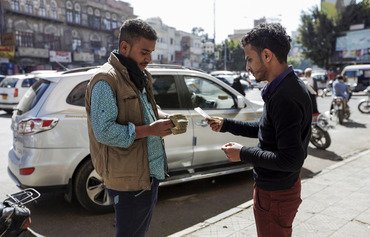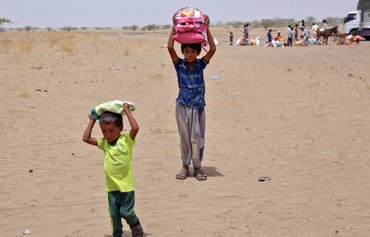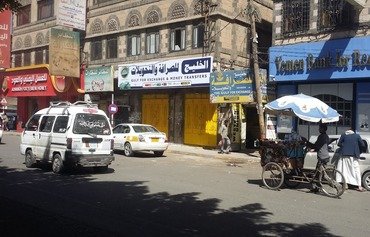Yemen’s riyal has been in continuous decline against other currencies, economists told Al-Mashareq, warning that this state of affairs will exacerbate the country's humanitarian crisis.
The exchange rate on Wednesday (October 4th) hit an all-time low against the US dollar and Saudi riyal, they said.
"The level of collapse of the riyal rate of exchange threatens a disaster," Studies and Economic Media Centre president Mustafa Nasr told Al-Mashareq.
This "will be negatively reflected on citizens and will compound their sufferings, making them unable to afford food or medicines", he said, adding that "the percentage of poverty among the people now is 85%, and is likely to rise".
"Yemen imports 95% of its food, and therefore the continued deterioration of the rate of exchange will be reflected in the rising prices of basic foods," he said.
"Meanwhile, citizens can no longer endure any more hikes because of the war, which has undermined their abilities, affected their life and impacted the country’s economy," he added.
Nasr urged the Central Bank in Aden to work to stem the deterioration of the exchange rate, and to implement financial policies that will help to stabilise the economy.
Food insecurity on the rise
In Yemen today, 17 million people are suffering from food insecurity, economist Abdul Jalil Hassan told Al-Mashareq.
The deterioration of the riyal rate of exchange against hard currencies will raise this number, he said.
"The Yemeni riyal has been continuously deteriorating, losing 67% of its value as compared to its rates before the war in 2015," he said.
The UN World Food Programme (WFP) on Wednesday announced that poverty rates have increased in parts of Yemen hardest-hit by the cholera outbreak, which has spread in 21 out of a total of 22 provinces.
"More than 17 million people, or two in every three people, do not know where they will get their next meal," the WFP said, noting that its efforts to avert famine in Yemen are less than 50% funded until the end of 2017.

![Yemeni women and children beg drivers for money on a street in Sanaa on October 27th, 2016. Economists warn that a recent drop in the currency exchange rate will contribute to rising poverty. [Mohammed Huwais/AFP]](/cnmi_am/images/2017/10/05/9910-Yemeni-family-begs-600_384.jpg)






